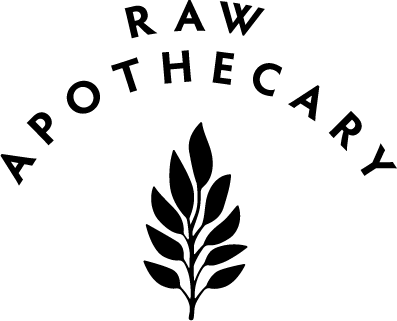It's Coco-not What You Think
We’re here to lay down some facts.
No, it’s not about the song (put the lime in the coconut and drink ‘em both up …), but we have to admit it’s catchy.
It’s about coconut oil!
The Caribbean Queen.
The island idol.
The … dandy drupe?
Tropical topical?
This is getting out of hand …
And that brings us to our first fact.
It’s great for your hands! Well, skin.
I know, I know, you smarty-pants already knew that.
Coconut oil is moisturizing, it’s a natural oil, it has fatty acids, so what? Old news.
Well, it goes a bit deeper than that. Specifically, under the skin.
The particular fatty acids in extra-virgin coconut oil, called MCFAs (medium-chain fatty acids), form a lipid called lauric acid. Lauric acid is one of the few natural fats that contains actual, verifiable antimicrobial and antibacterial properties.
This means that, on top of being very hydrating, it fights bacteria and fungi on the skin. Acne, infections in skin abrasions, nail fungus, and yeast issues are all broken down by lauric acid.
Coconut oil is not only a great moisturizer, but a great cleanser as well.
Usually, using a fatty oil on the face as anything but a moisturizer to clean off at the end of the night is a big no-no. You’ll get acne! It clogs pores! Your face doesn’t need more oil!
But when the oil is lauric acid, it’s actually not so bad. In fact, it’s much more gentle than your average face cleaners, which sometimes do more harm than good. Coconut oil doesn’t just shave off the top layer of oil on your skin, like drying alcohols or cosmetic acids. It penetrates the skin and wipes out bacteria living in your pores without disrupting your body’s natural oil production.
Pro-tip: Make sure to gently rinse your face with warm water and a clean washcloth after. Coconut oil cleans the skin, but you don’t want the evacuated ickies just chilling on your face afterwards.
It’s closer to you than you think.
Cryptic, right? Hang on, it’s about to get weird.
Coconut oil (well, specifically the water, which the oil is partially derived from) is nearly isotonic to human blood.
What does that mean? When a substance is isotonic to another, that means it has the same osmotic pressure. Okay … what does THAT mean?
In short, if you put a red blood cell into a solution that is isotonic, it will stay the same size. It won’t shrink, indicating water is being sucked out of it, and it won’t grow either. Both of these outcomes are generally bad.
Coconut water is so close to being identical to the liquid inside red blood cells, that it has been used as an IV solution for rehydration. Before you get your mad scientist lab hooked up, however, we want to emphasize that it is not the most ideal solution. It has definitely worked before, but obviously sterile IV fluid is the safest.
Since you probably shouldn’t inject it, how is this information useful? Hydration, y’all.
Coconut water has shown to be more useful in hydrating the body than most sports drinks. The oil, with its higher concentration of fatty acids, is therefore excellent in hydrating the skin - and does a better job being absorbed than other moisturizers, which sit on top of the skin.
Rejoice in your newfound blood-cousin, and feel safe knowing that coconut oil is one of the safest, most nourishing oils for your body.
It’s good for … your ears?
No, we’re not talking about moisturizing your ears, but you should definitely wash behind them (thanks, mom). We mean the inside of your ears.
Coconut oil, believe it or not, has been used successfully to treat mild ear infections and tinnitus. Tinnitus is a medical condition that causes ringing or buzzing in the ears. Some of the reasons for tinnitus are unknown, but one contributor to increased tinnitus symptoms is an overabundance of earwax. You see where we’re going with this.
Coconut oil helps to naturally break down earwax buildup, without the harmful side effects of other commercial earwax treatments. It doesn’t push the wax further in, and is much safer than sticking cotton balls (or any other object!) in your ear, which usually contain bacteria and can damage the sensitive tissue inside your ear canal.
The natural antiseptic properties of coconut oil can also gently treat ear infections. Severe or prolonged ear infections should always be seen by a doctor, but a mild earache can be eased by just a few drops of coconut oil.
Other natural oils have been used as ear remedies, but none of them contain as many healing benefits as coconut oil. Like we talked about in our first secret, coconut oil contains lauric acid that can treat mild infections and prevent the spread of dangerous bacteria.
It’s a truly ear-mazing oil. (Ouch.)
Incredible and Edible!
Let us humble-brag for a minute while we update you on this important fact: our coconut oil is USDA-approved organic. This fact comes with a sticky note for all you coconut oil consumers. Not every coconut oil is safe to eat! You may already be aware of this, but coconut oil that is bleached or overly-processed can lack some of coconut oil’s wonderful health properties or even present some health concerns. For example, some “refined” coconut oils are infused with man-made fats, called “partially-hydrogenated” fats. These are trans fats that have been related to a whole host of health issues, including heart disease.
Refined coconut oil also loses out on the best part: the rich coconut flavor! Our coconut oil has a light, fragrant flavor that adds an extra layer to your cooking - whether it be sweet or savory dishes. When coconut oil is refined, it is typically “dry milled.” This process bakes the coconut meat before extracting the oil, and kills off the vitamin content. Everyone knows plants are at their fullest potential in their natural state, which is why our refining process does not include bleaching or mixing with other additives. The result is an oil that is ideal for cooking, frying, and any other edible purpose you can think of!
Including coconut oil in your cooking offers a plethora of anti-inflammatory and antioxidant benefits due to the MCFAs (remember, medium-chain fatty acids!) present in the fruit. Now, this is a debated stance, as coconut oil does have a higher ratio of saturated fat than butter and lard. Saturated fats are responsible for raising LDL, or “bad” cholesterol levels. However, as this is a plant-based oil instead of an animal-based oil, the additional health benefits involved often offset the negative effects of high saturated fat. Additionally, coconut oil also increases your HDL, or “good” cholesterol, which has the very important job of removing bad cholesterol from your bloodstream.
Proteins on Lock(s)
No, eating coconut oil is not likely to boost your protein gains. However, putting it in your hair will. Your hair follicles are made of mostly protein, which gives your hair its strength and length. Does your hair break if you comb it, or dry it with a towel? This could be a lack of protein creating weakness in the follicle. Many people meet this issue when they bleach or treat their hair with peroxide-based products, which saps proteins from your hair in order to lighten color or change the follicle shape.
You may have seen this trick used before by beauty bloggers or lifehackers, and we’re here to confirm: a coconut oil mask before coloring or bleaching your hair will save it from damage. The reason is simple! Coconut oil has a high affinity for hair proteins, and is able to penetrate the shaft to provide protection at a molecular level. Other oils typically cannot provide this protection, as it sits on top of the hair follicle. When bleach is added to the hair, it will travel through that outer protection and damage the follicle beneath it. With coconut oil, the bleach or dye will still penetrate the hair and result in color change, but it won’t damage the proteins as much.
This is an ideal treatment for people who have color-treated their hair before, or who have fine follicles. It’s also super easy - slap some virgin coconut oil on your dry hair to fully saturate the strands, wait a few hours or overnight to let it soak in, and then apply the bleach or dye directly onto your oiled-up locks!
Pretty cool, right? Coconut oil is a great infection fighter, skin hydrator, wax buster, cooking oil, and hair savior - phew! Now head out into the world with your new grasp on all the amazing benefits of coconut oil and change your life. Or, at the very least be a little bit better at trivia games.




